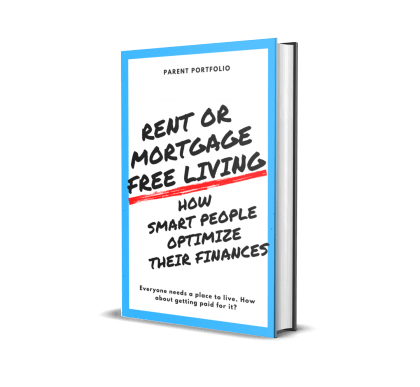Essential Estate Planning Tips for Beginners

You may have heard the old expression, “you can’t take it with you.” The “it” that you’d most likely like to leave behind requires a plan. When you pass, you can’t bring along your bank accounts, property, and investments.
So who gets your wealth? Have you thought about who will receive your assets and how your loved ones will be taken care of when you are gone? The process of putting together these specific directions is called estate planning.
Before we begin, we just wanted to let you know that the following article is meant for general informational purposes. For questions regarding estate planning and any related topics, please consult a legal professional.
Immediate Advantages of Estate Planning
Many younger people assume that estate planning is only for the old and the rich, but estate planning can be addressed at any time and in any tax bracket.
In fact, estate planning is not only about passing on your assets when you die, rather it includes what directions you would want to provide to loved ones, or who would take care of your children if you are a parent.
You can make changes to your estate plan along the way, as your life situation changes.
Even more important, estate planning is a way to start thinking through these decisions and put them down in writing to communicate to others. Rather than simply assuming that your loved ones would know what you want, you have the opportunity to get rid of potential ambiguity and arguments by defining your wishes.
What Is an Estate?
In the simplest terms, an estate is everything you own—money and assets, including your home and your car—at the time of your death. When you decide, in advance and in writing, who will get your assets and money, that’s estate planning.
Your heirs are the people who will receive your money and assets after you’re gone. The act of giving these things to your heirs is called asset distribution.
Your debts are also part of your estate—anything you owe on credit cards and loans may have to be paid off first by your estate before any further money or assets are distributed to your heirs.
Estate planning is not entirely about money. It may also leave instructions for how your incapacitation or death may be handled. For instance, you may not want to be kept on a life-support system if you were in a coma. You may want to be cremated instead of buried. These instructions can be included in your estate planning.
Creating an Estate Plan
Many people struggle with the idea of where to start, or simply do not think they need to have a plan. The simple fact is that estate planning will be different depending on your lifestage. Here is a rough idea of what you might want to explore based on your lifestage (don’t worry if you are not familiar with the documents listed, we will explain those later):
• Are you single without any dependents? You may want to explore a durable power of attorney, letter of instruction, and defining beneficiary designations on your accounts.
• Are you married without any dependents? You may want to explore a durable power of attorney, letter of instruction, living will, healthcare power of attorney, and defining beneficiary designations.
• Do you have dependents? You may want to explore a durable power of attorney, letter of instruction, living will, healthcare power of attorney, will, and defining beneficiary designations.
Now that we’ve talked about what you might want to consider when developing your estate plan, let’s summarize what each of those documents does:
• A durable power of attorney: This is a legal document in which you name another person to act on your behalf if you are unable to do so. You can grant limited or broad power to that person. Some examples include being able to pay your bills or make decisions about your investments.
• A letter of instruction: This is a document that can help organize the logistics of your estate plan and give you an opportunity to provide a personalized message to your loved ones. This document could be used by your loved one to understand your wishes and easily access everything you own and owe.
• A living will: This is a document that expresses your intentions regarding life-sustaining measures. It is important to understand that this expresses what you want but does not give anyone the authority to speak for you, which is why it’s normally accompanied by a healthcare power of attorney.
• A healthcare power of attorney: This is a document that authorizes someone to make medical decisions for you in the event that you are unable to make them for yourself.
• A will: This is a document that provides instructions for distributing your assets upon your death. There are additional provisions that could be added and details your attorney can work through, but for parents, this is also where they might designate a guardian.
• Beneficiary designations: Beneficiary designations are made on accounts and insurance policies to establish who gets the account when you pass away. You may want to review these and make sure they align with your overall intentions and are updated as your life changes.
Asking Yourself the Following Questions Before Estate Planning
- Who is the executor? Be sure it’s someone you can trust with your life. Literally.
- Who will receive my assets? In most cases it’s children or next of kin, but you can leave your assets to anyone or anything, including charities.
- Who gains custody of my children? Basically, who are your children’s godparents? Who is responsible for and worthy of raising your children if you are no longer there?
Partnering Up With an Attorney or Tax Professional
You might want to educate yourself all you can and make sure a professional has your back and can help you navigate the choppy waters of estate planning. A professional might help you create the documents that can make your estate official and advise you on how taxes may affect your plan.
Ultimately, you will have the final say on how you want your estate to be managed and executed, but a professional could help you arrive at educated, rational, and sensible decisions. They could also help communicate your objectives so that mistakes and miscommunications can be avoided.
They may even be able to help you plan your estate so that you can pay taxes correctly and possible pay even less in taxes than you may have done on your own.
An estate professional will more than likely charge you a fee, but the cost of having expert help may ultimately save you thousands of dollars in costs, legal and otherwise, if you make a mistake.
Getting Started on Your Estate Planning
Need some more tips to hash this out? That’s not uncommon. Estate planning is not as basic as it looks.
And if you’re just starting out, it may help to figure out a way to grow your assets so that when you do leave something behind, it could be significant and useful. Maybe even life-changing.
Disclaimers:
External Websites: The information and analysis provided through hyperlinks to third-party websites, while believed to be accurate, cannot be guaranteed by SoFi. Links are provided for informational purposes and should not be viewed as an endorsement.
Financial Tips & Strategies: The tips provided on this website are of a general nature and do not take into account your specific objectives, financial situation, and needs. You should always consider their appropriateness given your own circumstances.
Tax Information: This article provides general background information only and is not intended to serve as legal or tax advice or as a substitute for legal counsel. You should consult your own attorney and/or tax advisor if you have a question requiring legal or tax advice.
SoFi Invest®
The information provided is not meant to provide investment or financial advice. Investment decisions should be based on an individual’s specific financial needs, goals and risk profile. SoFi can’t guarantee future financial performance. Advisory services offered through SoFi Wealth, LLC. SoFi Securities, LLC, member FINRA / SIPC . The umbrella term “SoFi Invest” refers to the three investment and trading platforms operated by Social Finance, Inc. and its affiliates (described below). Individual customer accounts may be subject to the terms applicable to one or more of the platforms below.
SOIN19200
This article is originally on SoFi.






